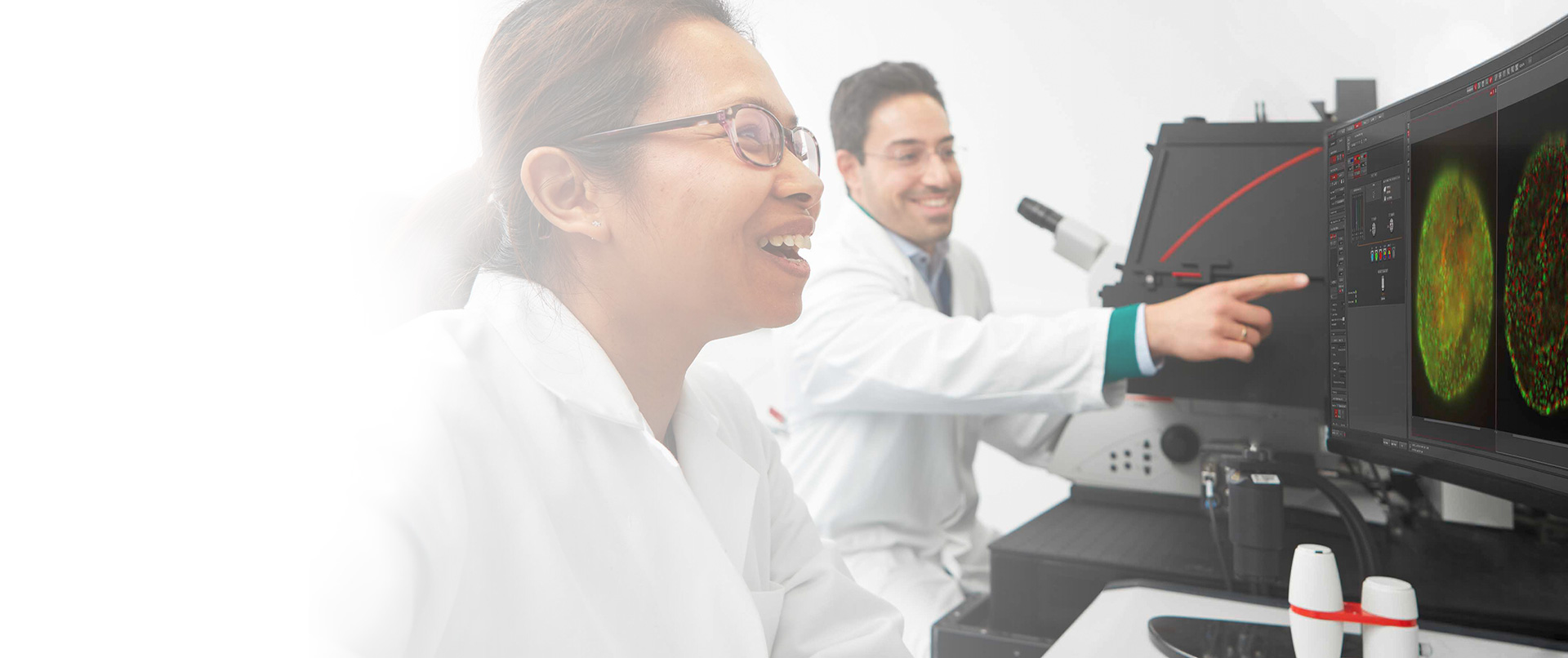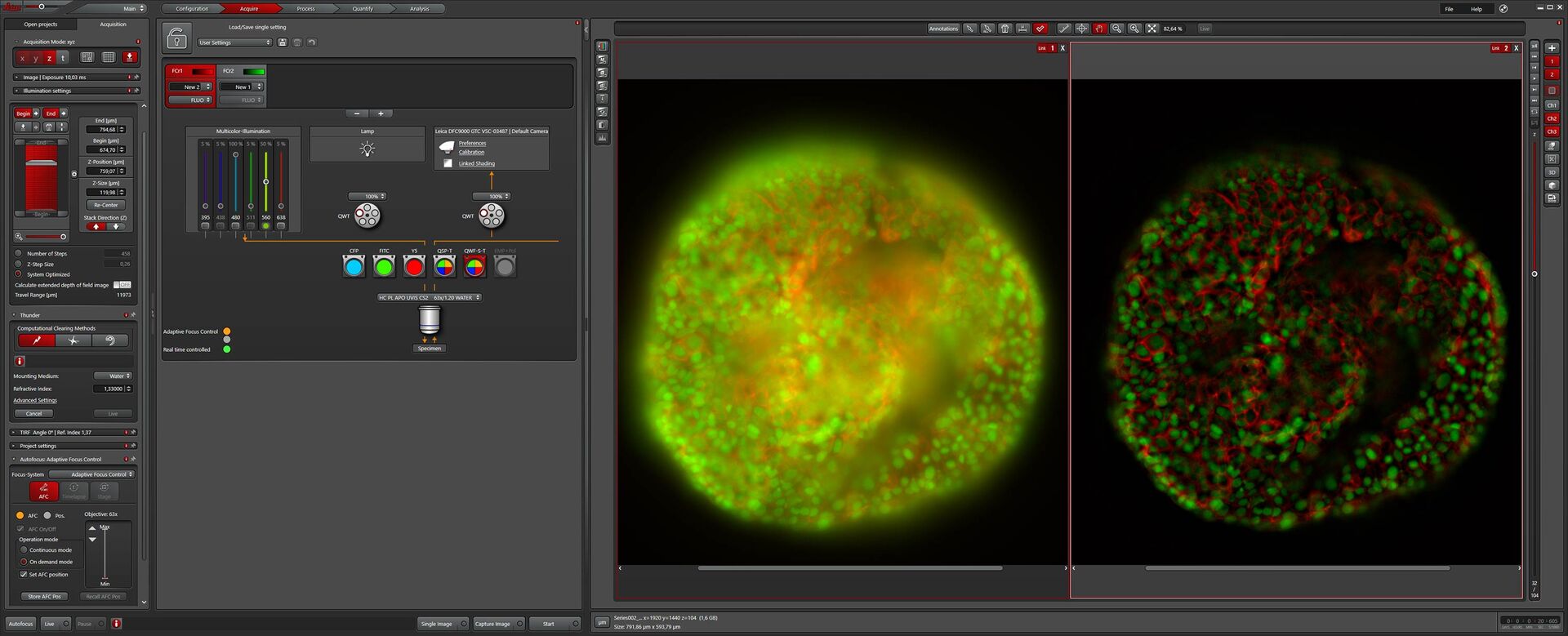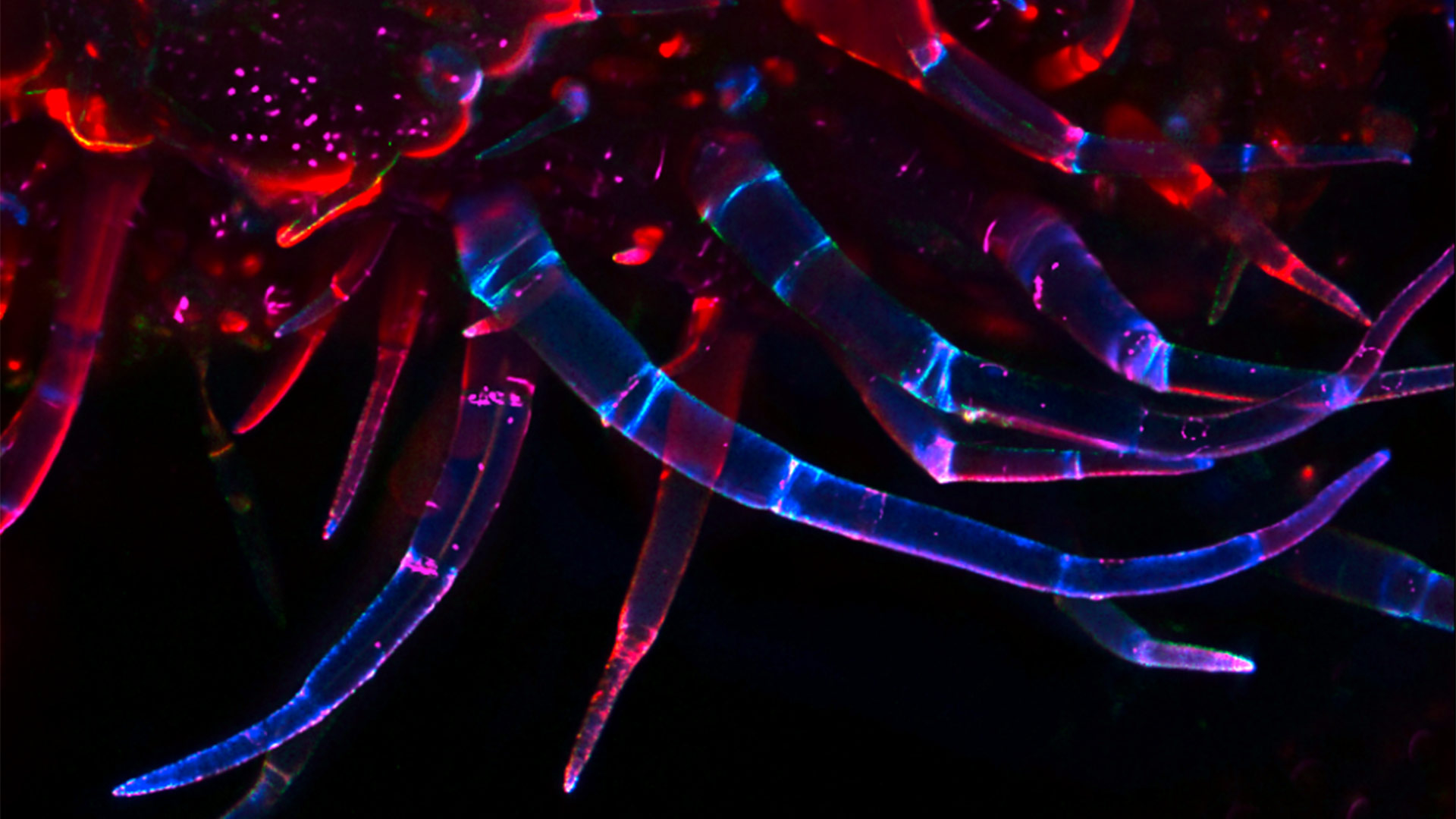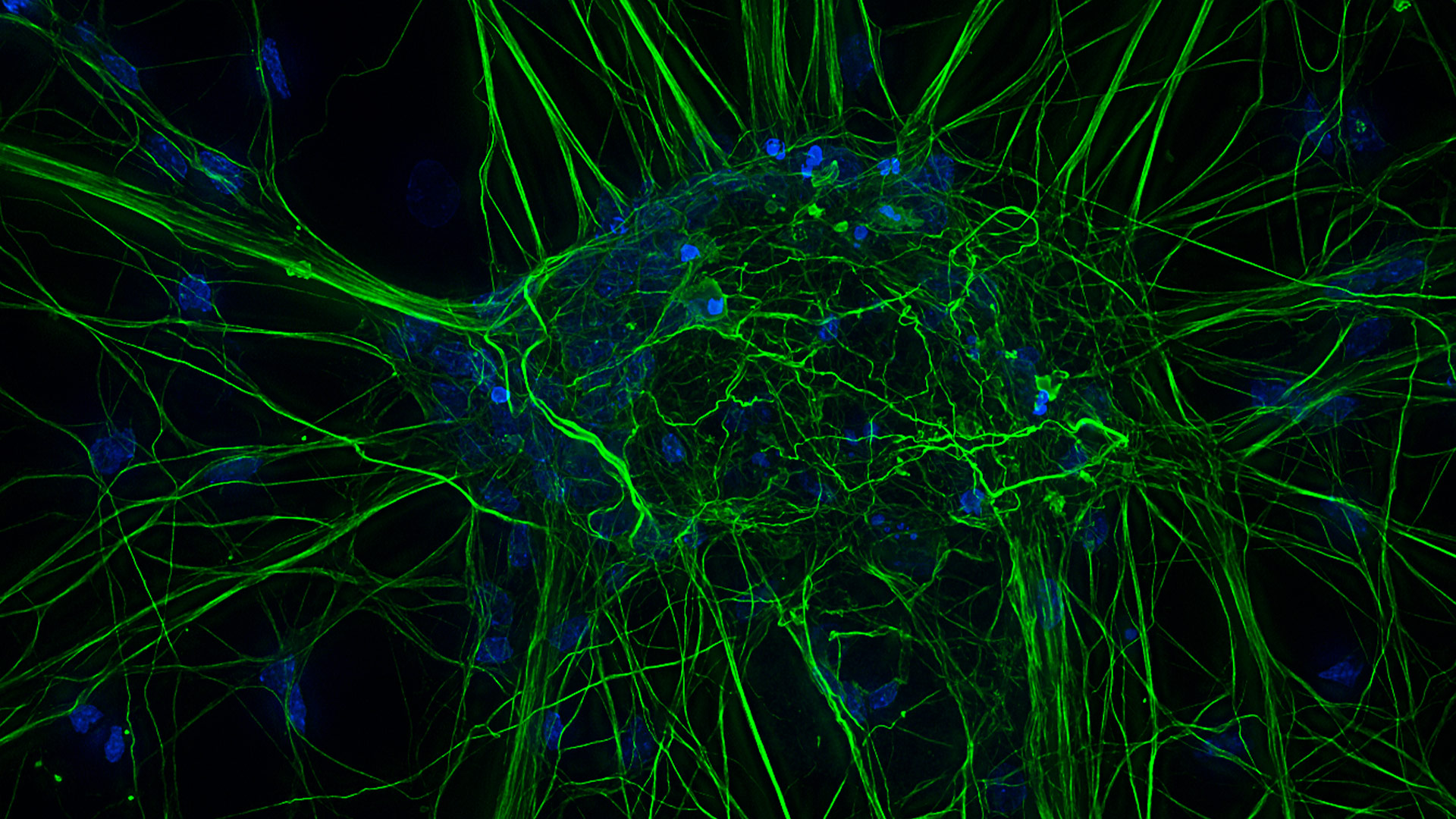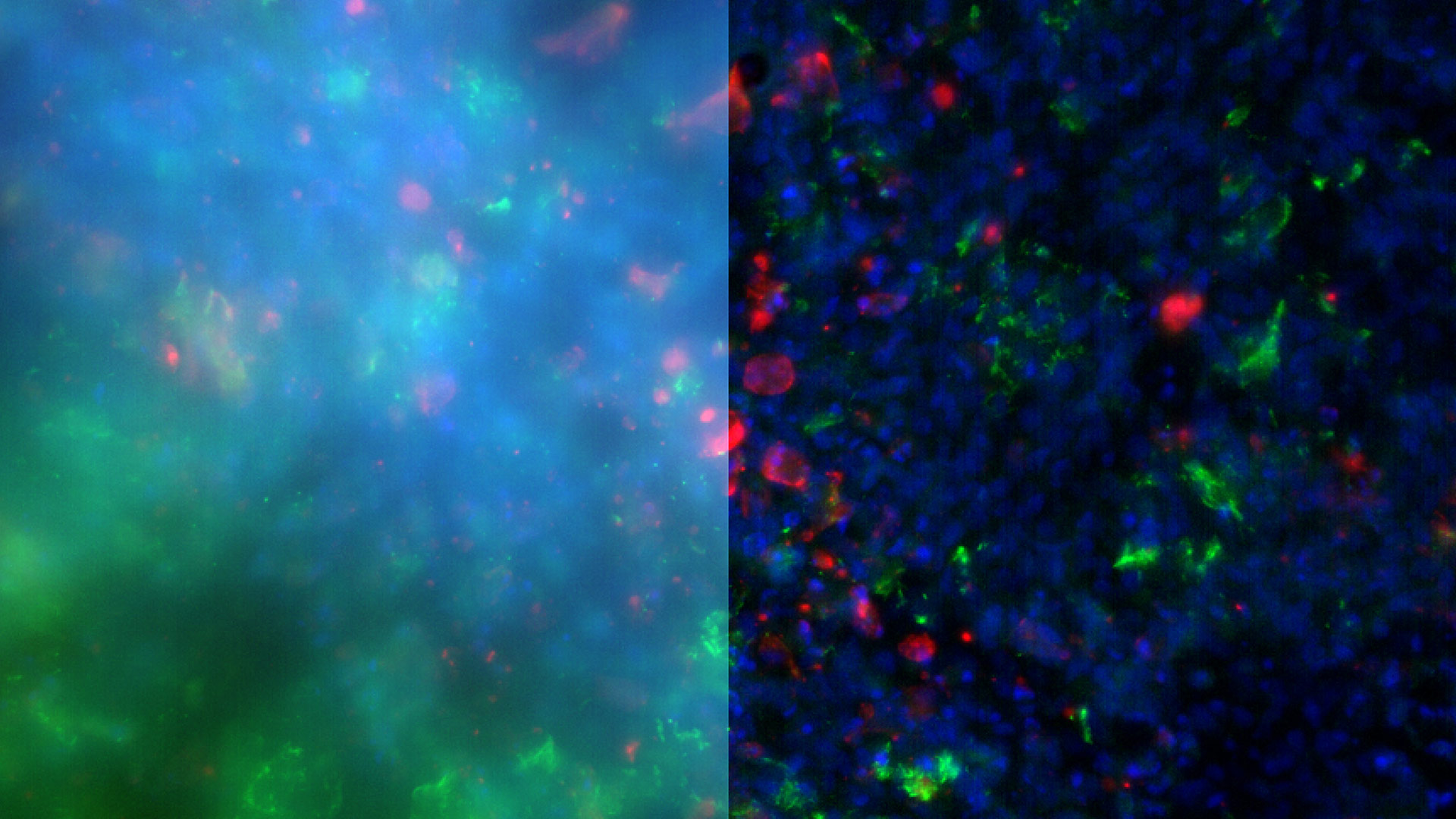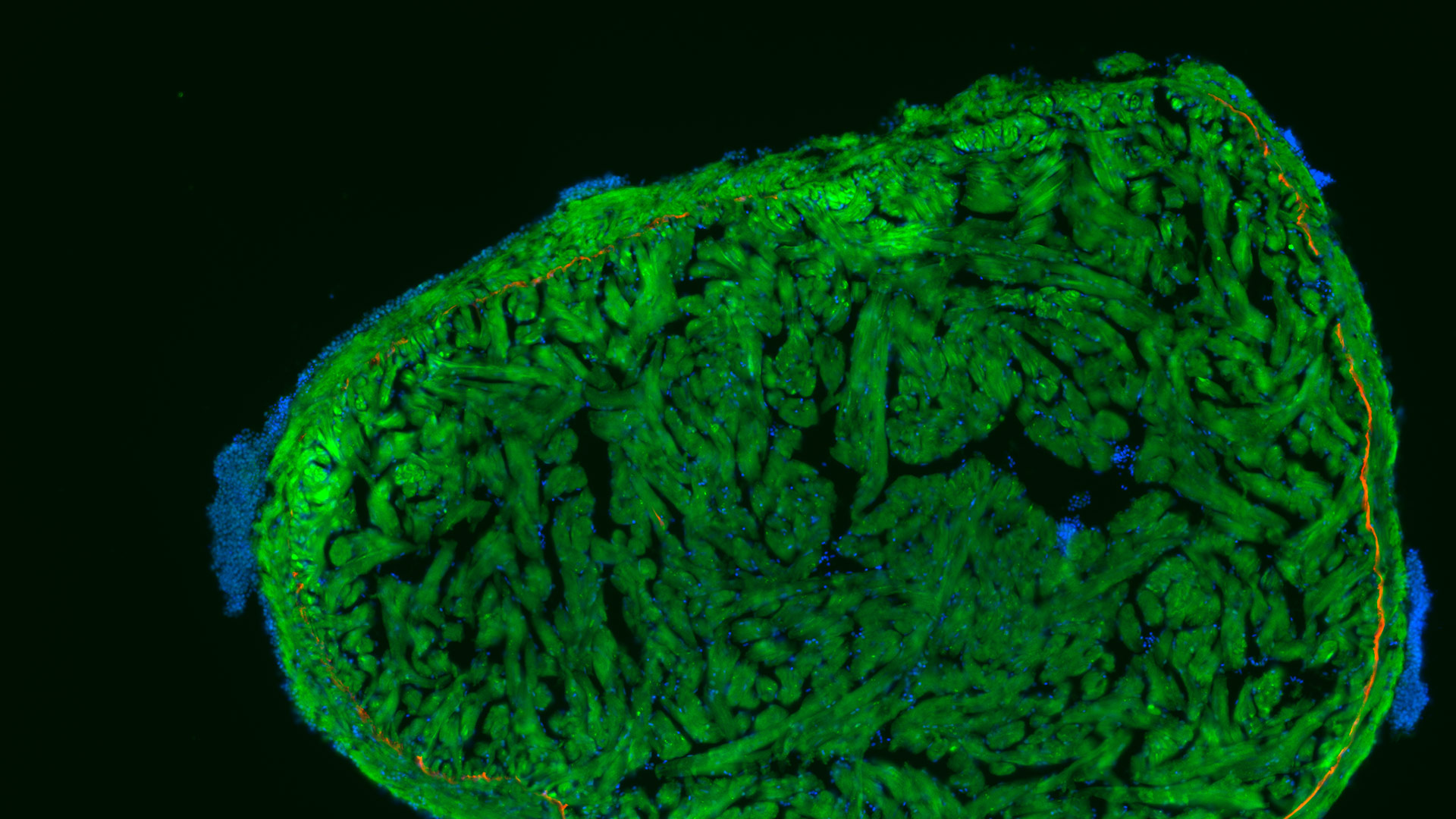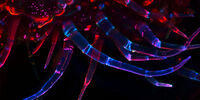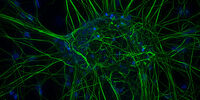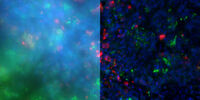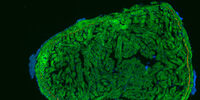
THUNDER Imaging Systems
THUNDER Imaging Systems
THUNDER Imaging Systems
Easily tackle biologically relevant 3D models with THUNDER Imagers.
They bring you high-speed, multicolor imaging of thin and thick samples with increased temporal resolution in the first attempt itself.
To answer important scientific questions, they enable you to obtain a clear view of details, even deep within an intact sample, in real time without out-of-focus blur. Sharp imaging of 2D and 3D specimens is now as easy as working with your favorite camera-based fluorescence microscope.
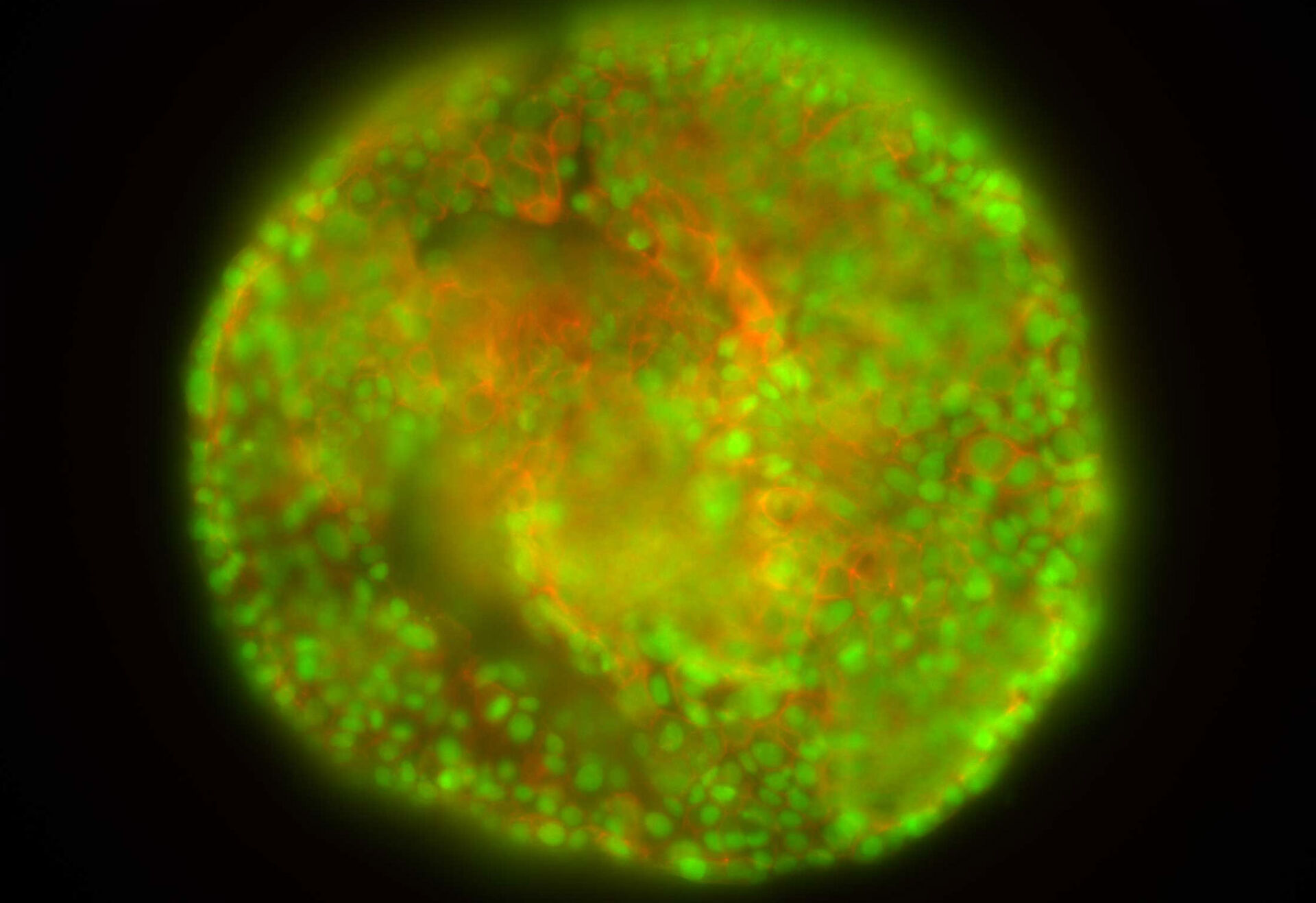
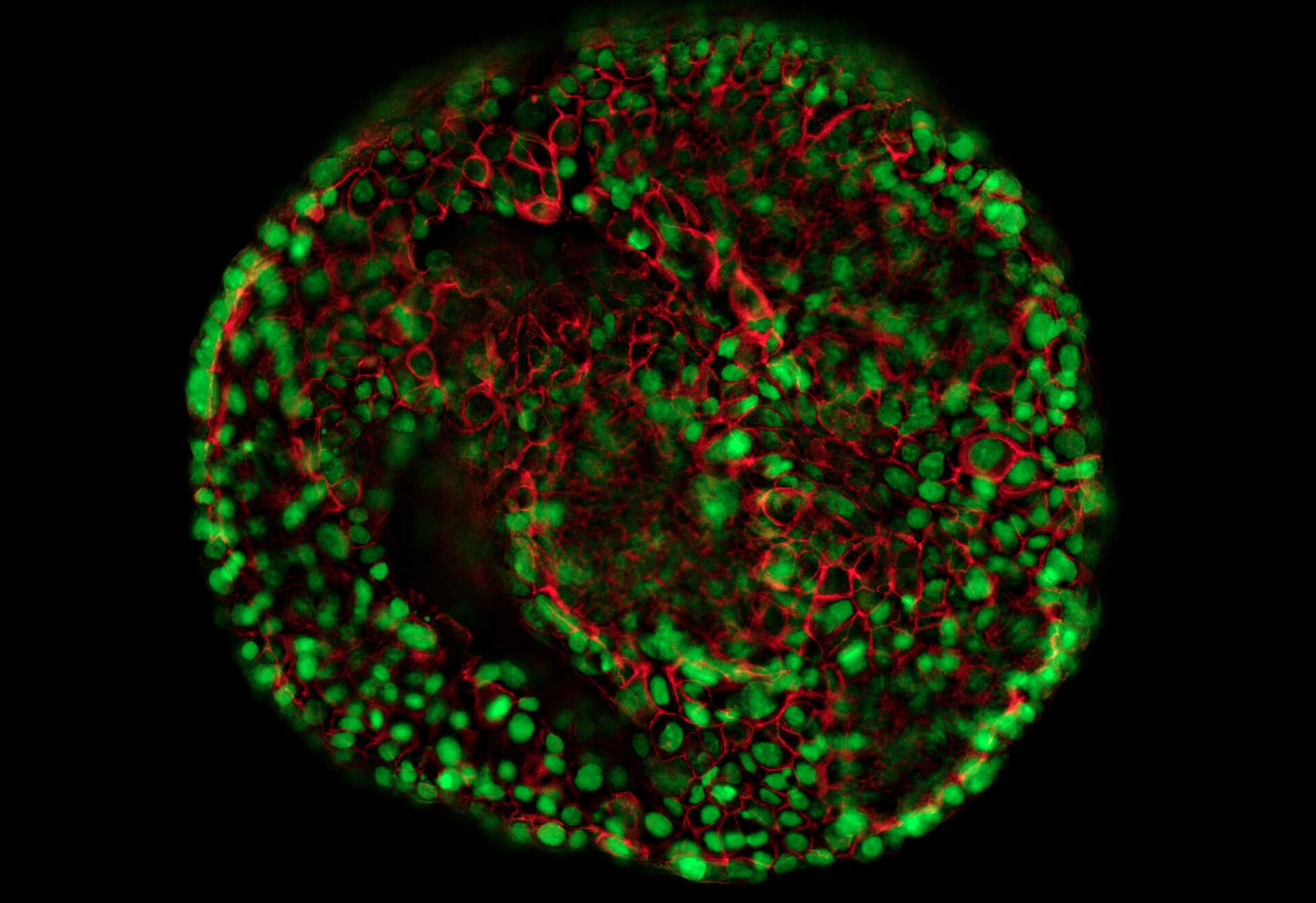
HeLa cell spheroid stained with Alexa Fluor 568 Phalloidin (Actin) and YOYO 1 iodide (Nucleus).
Decode 3D biology in real time*
Fundamentally change the way you work when imaging model organisms, tissue sections, and 3D cell cultures like organoids. Whether single cells, tissues, whole organisms, or tumor spheroids, THUNDER Imagers enable the decoding of 3D biology in real time, with immediate visual feedback.
THUNDER imaging systems excel due to
- Delivery of benchmark performance and first-rate results for your application
- Clear view of details even deep within the specimen thanks to Computational Clearing, directly in your live preview
- Ease of use, speed, and sensitivity, just like with widefield imaging
*in accordance with ISO/IEC 2382:2015
Find the right THUNDER Imaging system!
Please answer a few short questions, so we can recommend the best one that fits your needs.
Contact us{{ question.questionText }}
Please select an answer!
Best Match
{{ resultProduct.header }}
{{ resultProduct.subheader }}
{{ resultProduct.description }}
{{ resultProduct.features }}
Request Your Information Package
image analysis software solutions
Analyze your images for hidden insights
Aivia and LAS X, advanced image analysis software solutions from Leica Microsystems empower you to take your microscopy-based research to the next level.
By combining THUNDER with Leica’s AI-driven image analysis software Aivia, you can gain meaningful insights from your microscopy imaging data through a wide range of machine learning and deep learning algorithms. Learn more about image analysis solutions from Leica Microsystems.
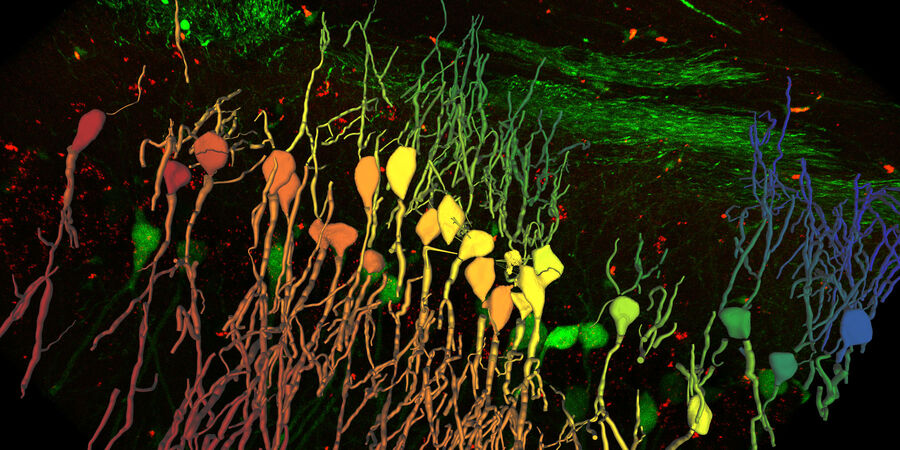
Take a look at all our upcoming congresses, exhibitions, webinars, and workshops and join us at one of our next events!
上科大CLEM技术培训班
第三届寒地夏都神经肿瘤和创伤学术论坛暨黑龙江省医学会神经外科分会第33届年会
The THUNDER Technology
THUNDER is an opto-digital technology that uses the Computational Clearing method to generate high resolution and high contrast images. Computational Clearing removes the typical haze inherent to all widefield images of thick samples. It produces brilliant results for large image stacks, as well as single images taken deep in your sample.
THUNDER, a Leica technology, automatically takes all relevant optical parameters into account in order to achieve haze-free results in real time.
Technology Note
Still questions about the THUNDER technology? The detailed answers are in this technology note.
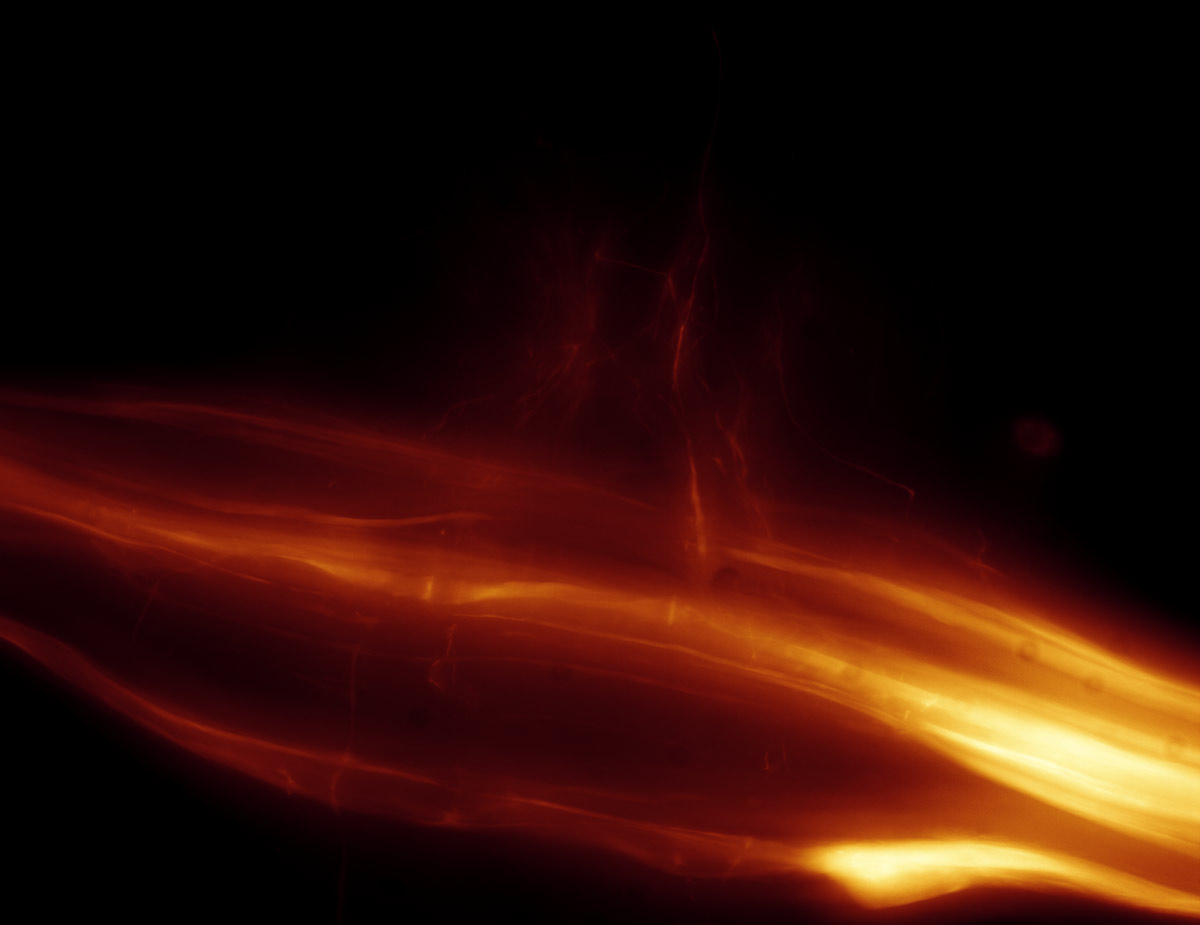
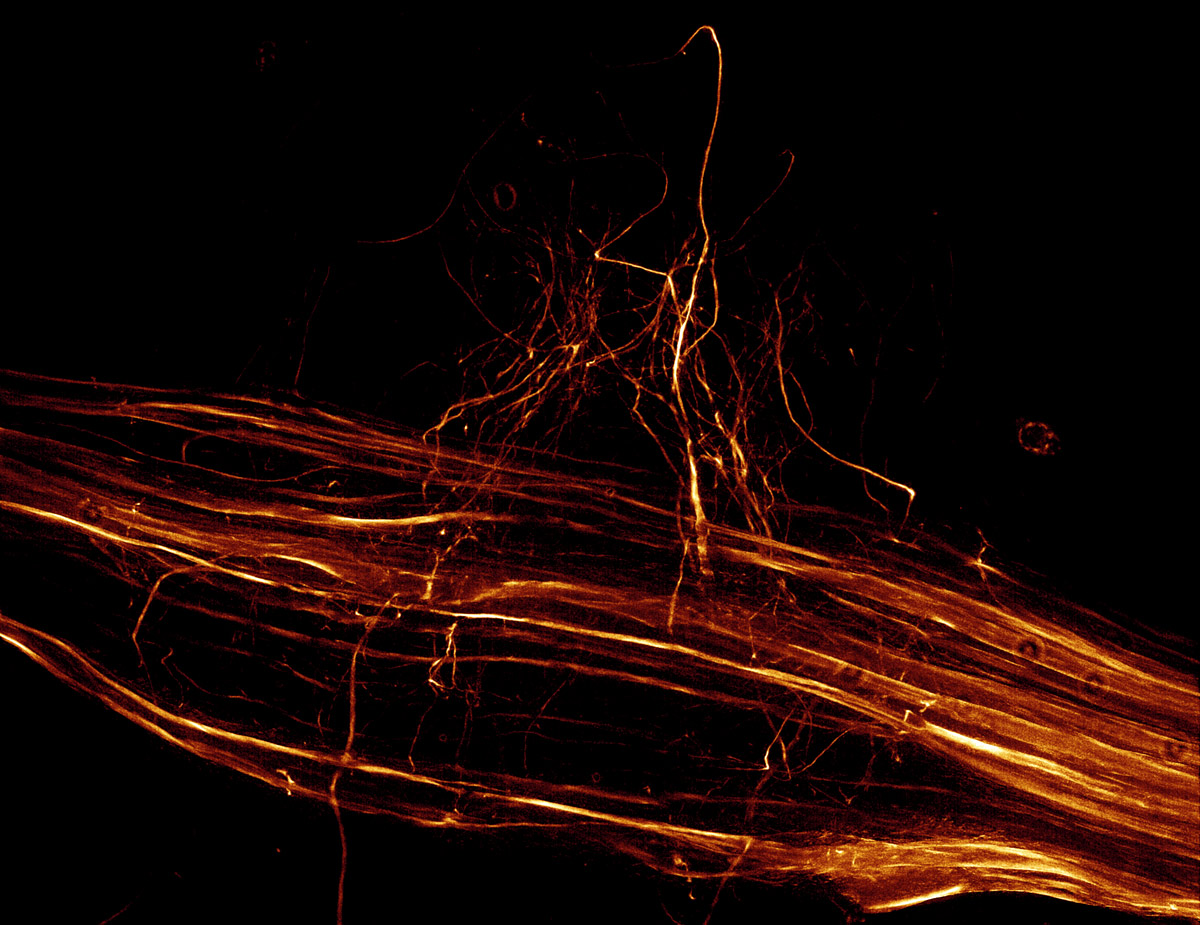
Image of a locust ganglion, showing a maximum projection, without (left) and with (right) THUNDER. Sample thickness: 110µm, data volume: 376 MB. Acquisition time using Computational Clearing: 3 seconds.
Speed you can see - THUNDER Live
Speed You Can See
Perform high resolution tissue imaging as well as live sample and model organism imaging on thick samples without struggling to find your region of interest.
The new THUNDER Live add-on visualizes a computationally cleared image instantly in the live viewer and allows you to optimize ICC parameters by using live image feedback.
THUNDER offers speed that you can see and feel.
Imaging a mouse brain section with THUNDER Live
Focusing through a 165µm thick mouse brain section using THUNDER Live. Feature scale is used to emphasize neurites. Neurites are much better visualized with THUNDER Live compared to conventional widefield microscopy, allowing better identification of regions of interest. In addition, THUNDER Live shows a preview of THUNDER image quality.
Neurons expressing Thy1-YFP fusion protein. Objective: 63x/1.4 oil.
Sample courtesy of Dr. Hong Xu, University of Pennsylvania, Philadelphia (USA)
Imaging a tumor spheroid with THUNDER Live
With THUNDER Live, it is possible to evaluate the dynamics of cell-cell and cell-matrix interactions in deeper region of a 3D cell culture sample in real time. Without THUNDER Live, a user using conventional widefield microscopy, would struggle to see intrinsic details in depth due to out of focus blur. Now with THUNDER Live, the user can unlock details that were otherwise masked by the out of focus blur in depth and determine suitability of regions of interest for imaging or creating 3D volumes with live preview.
Imaging a mouse kidney section with THUNDER Live
Focusing through a 20µm thick mouse kidney section. Feature scale was used to visualize proximal tubule boarders allowing better identification of regions of interest compared to conventional widefield microscopy.
Achieve Outstanding Results with Ease
THUNDER works fast. All it takes is one click. No need to calibrate the system or to adjust hardware components. Just select a Computational Clearing method and generate expert-level results in a breathtakingly short time.
Need to replicate an experiment for multiple specimens? All the imaging parameters of THUNDER can be easily reproduced and applied to other tasks.
THUNDER would specially be useful for time-lapse, because it allows very fast scanning of big samples in less than 2 minutes, and provides exceptionally crisp images.
Computational Clearing
Computational Clearing efficiently differentiates between wanted signal and background by taking the feature size of a specimen into account. This approach instantly makes image details visible which may have been formerly obscured by unwanted signal. With the need of only a single image, stunning results can be displayed live for the user to view. It provides a powerful technique for both 2D and 3D imaging.
Depending on the type of application, computational clearing can be combined with adaptive deconvolution using the Leica decision mask technology. With the method being fully automated, it can work independent of manual user input. THUNDER delivers consistently high-quality images, surpassing standard widefield images. Improving multi-dimensional data is only a single click away.
Reliable results, ready for the next step
Just activate Computational Clearing once and acquire haze-free images. It does not matter how simple or complex your experiments are, the raw data will always be stored for validation.
The haze free results with clear structures can easily be segmented and used for further analysis, such as counting nuclei, or the number of spots per nucleus, particle tracking, etc.
See through the haze
THUNDER Imagers remove the out-of-focus blur that occurs with widefield observation through the Leica method called Computational Clearing. With THUNDER Imagers you can have both high-quality 3D images of thick samples and, at the same time, benefit from the speed and sensitivity like with a widefield system.
